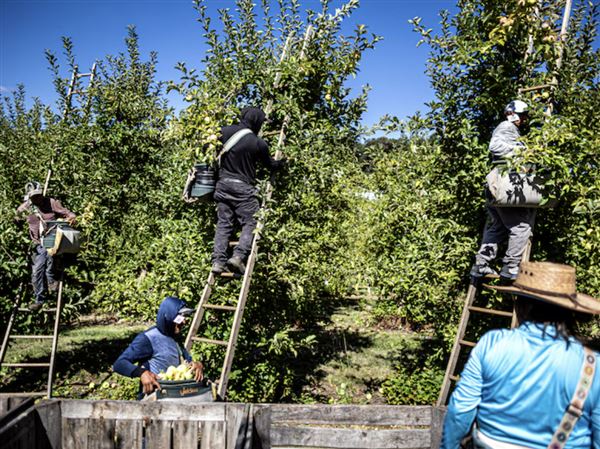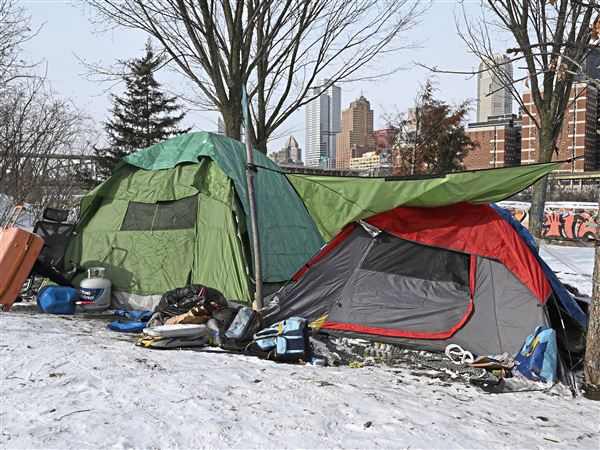By adopting the historic Paris climate accord, the world’s nations have agreed to work together for the good of the planet. They would do well to follow the example of some of our leading cities, as to date some of the most striking actions on climate change have taken place at the local level. The greater Pittsburgh community is among those setting the pace.
Over a recent 12-month period, Pittsburgh-area businesses generated $8 million in energy savings, reduced carbon emissions by 4,821 metric tons and saved 5.4 million gallons of water — enough to fill Heinz Field. At the same time, homeowners in the city kept more than 1 million pounds of carbon-dioxide equivalent out of the atmosphere by reducing power and water usage.
A large percentage of these improvements were driven by young volunteers, including many Western Pennsylvanians who are working with local partners to advance Pittsburgh’s Climate Action Plan and forge a more sustainable future.
The Student Conservation Association, a national leader in youth service and stewardship, was launched nearly 60 years ago with a mission of protecting national parks. As our ecological challenges have evolved, so has SCA. Since 2008, the organization has deployed scores of “sustainability fellows,” young professionals with advanced skills and training who have worked with local governments, corporations, nonprofit organizations, schools and neighborhoods to mitigate climate-change pollution.
“The fellows are very creative in shaping programs and producing effective outcomes,” reports Sustainable Pittsburgh program director Matt Mehalik, “They’ve had a remarkable impact.”
For example:
• At the Pittsburgh Water & Sewer Authority, SCA’s Itha Cao is managing the launch of a citywide stormwater management program, working with a local committee to fund, measure and assess an array of catchment projects as climate-driven rain events become more frequent and intense.
• Nicole Catino, a LEED (Leadership in Energy and Environmental Design) Green Associate, helps direct the Black & Gold City Goes Green campaign, in which community volunteers go door-to-door with energy-conservation kits that enable residents to save money and reduce pollution.
• Ari Lattanzi conducted greenhouse-gas emission inventories and facilitated the development of Pittsburgh’s new climate strategy before being hired by the city. Ms. Lattanzi is now overseeing sessions with stakeholders to develop emissions-reduction measures involving citywide transportation, residential- and commercial-energy use, water demand and land use.
Other sustainability fellows include urban tree-canopy experts with Tree Pittsburgh, alternative transportation researchers with the Green Building Alliance and recycling-program outreach managers with the Pennsylvania Resources Council. Participants in this ongoing effort helped Sustainable Pittsburgh win Gov. Tom Wolf’s 2015 Environmental Excellence Award.
While rising sea levels drive much of the climate conversation, the industrial heartland faces an entirely different set of issues. Our urban centers and energy-intensive economy generate vast amounts of greenhouse gases that not only warm the climate but also contribute to “heat islands,” increase air pollution, harm water quality and help breed new pests and diseases.
At the Paris climate conference, former New York Mayor Michael Bloomberg — now a special climate envoy for the United Nations — noted that “cities are where the people are, where the problems are and where the solutions are.” He released a comprehensive report on the actions cities can take to slow rising world temperatures, including structural retrofitting, energy reduction and alternative transportation.
Pittsburgh is ahead of the curve on all these fronts, and Mayor Bill Peduto was one of 360 city leaders around the globe to sign on to the Compact of Mayors, committing to further emissions reductions.
In the midst of its extraordinary comeback, this region has turned climate resiliency into a rallying point for revitalization and economic development. And as our young people will inherit whatever lies ahead, good or bad, SCA is proud of the accomplishments of our sustainability fellows in collaboration with Pittsburgh leaders.
Miriam Parson is sustainability program manager for the Student Conservation Association, which is based in Charlestown, N.H. She holds a masters of sustainability and management degree from Chatham University and lives in Garfield.
First Published: December 15, 2015, 5:00 a.m.













